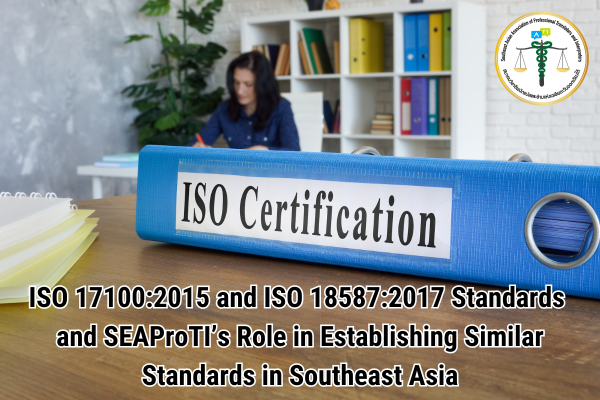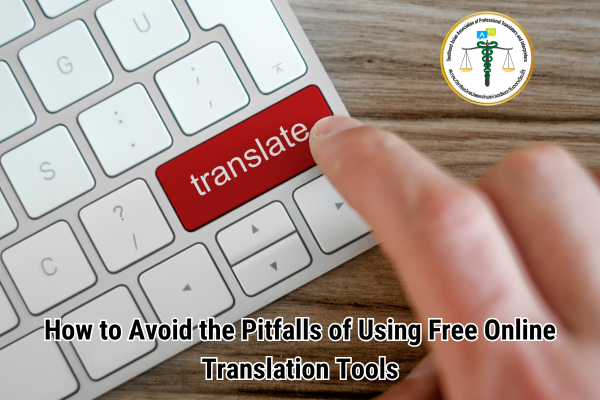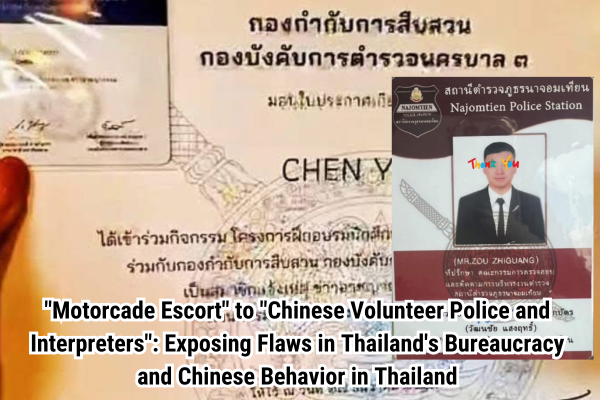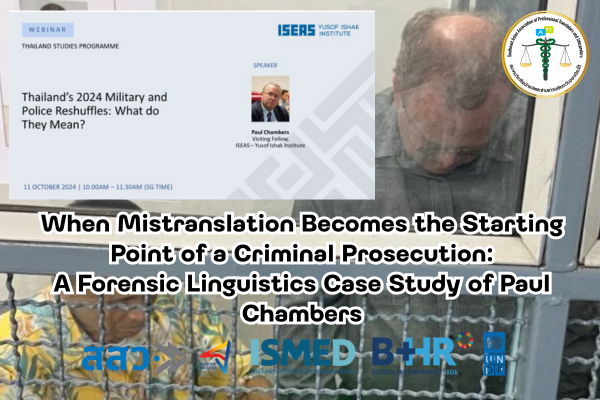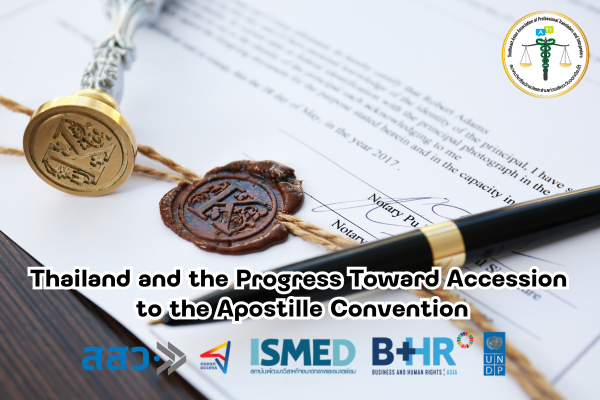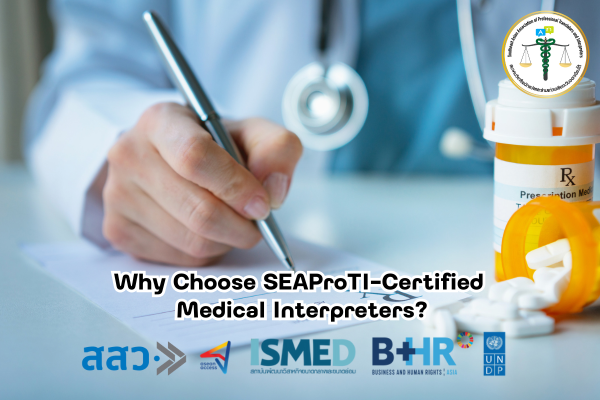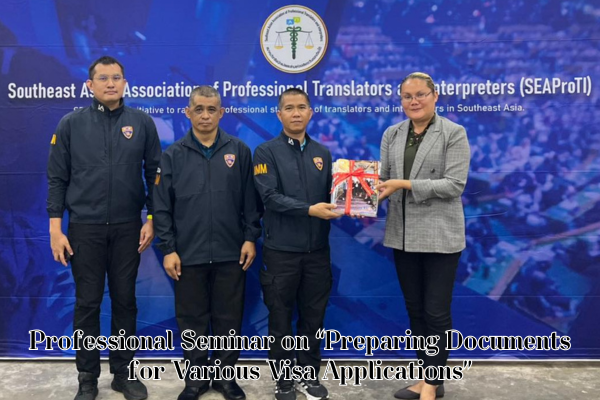ISO 17100:2015 and ISO 18587:2017 Standards
and SEAProTI’s Role in Establishing Similar Standards in Southeast Asia
In the translation and interpreting industry, reliability and quality are of utmost importance. International standards such as ISO 17100:2015 and ISO 18587:2017 play a crucial role in defining guidelines and processes to ensure quality translation services. However, in Southeast Asia, these standards may not be entirely suitable for all operators, particularly SMEs and boutique translation companies. This makes the role of the Southeast Asian Association of Professional Translators and Interpreters (SEAProTI) significant as it provides an alternative standard tailored to the regional context.
ISO 17100:2015 – Translation Services
ISO 17100:2015 is a standard focused on ensuring quality in translation services by setting requirements related to:
-
Translation and revision by qualified professionals
-
Minimum qualifications for translators and reviewers
-
Resource and project management
-
Confidentiality of client information
This standard is internationally recognized and is suitable for translation companies aiming to elevate their service standards to build client trust. However, implementing this standard comes with high costs in both certification and restructuring, which can be a barrier for smaller operators in Southeast Asia.
ISO 18587:2017 – Post-Editing of Machine Translation
ISO 18587:2017 is designed to support the process of machine translation (MT) and post-editing, requiring editors to have expertise in both language and translation processes.
This standard is ideal for organizations integrating automated translation technology with human translation processes, enhancing efficiency and reducing costs. However, like ISO 17100:2015, adopting ISO 18587:2017 involves significant expenses, making it less feasible for budget-constrained operators.
SEAProTI’s Role in Establishing Alternative Standards
To address the limitations of ISO standards in Southeast Asia, the Southeast Asian Association of Professional Translators and Interpreters (SEAProTI) has played a vital role in developing an alternative accreditation standard tailored to the region’s context. Key advantages include:
-
Affordability: SEAProTI’s certification involves lower costs than ISO standards, making it accessible for SMEs and boutique translation companies.
-
Transparent Verification Process: SEAProTI employs verification principles aligned with international standards, ensuring trust in quality.
-
Regional Relevance: SEAProTI’s standards are designed to meet the specific needs and constraints of operators in Southeast Asia.
Moreover, SEAProTI accreditation enhances the credibility of regional operators without imposing the financial burden associated with ISO certification.
Conclusion
ISO 17100:2015 and ISO 18587:2017 are voluntary international standards focusing on quality assurance in translation and post-editing processes. While beneficial in raising service standards, their high costs and stringent requirements may not suit all operators. Conversely, SEAProTI has developed an alternative standard that is more affordable, aligns with regional needs, and helps elevate translation service quality in Southeast Asia to compete on a global scale.
For operators looking to improve service quality but concerned about costs, SEAProTI accreditation offers a cost-effective solution that balances investment with industry credibility.
SEAProTI’s certified translators, translation certification providers, and certified interpreters:
The Southeast Asian Association of Professional Translators and Interpreters (SEAProTI) has officially announced the criteria and qualifications for individuals to register as “Certified Translators,” “Translation Certification Providers,” and “Certified Interpreters” under the association’s regulations. These guidelines are detailed in Sections 9 and 10 of the Royal Thai Government Gazette, issued by the Secretariat of the Cabinet under the Office of the Prime Minister of the Kingdom of Thailand, dated July 25, 2024, Volume 141, Part 66 Ng, Page 100.
To read the full publication, visit: the Royal Thai Government Gazette
มาตรฐาน ISO 17100:2015 และ ISO 18587:2017
กับบทบาทของ SEAProTI ในการกำหนดมาตรฐานในเอเชียตะวันออกเฉียงใต้
ในอุตสาหกรรมการแปลและล่าม ความน่าเชื่อถือและคุณภาพของงานถือเป็นหัวใจสำคัญ มาตรฐานสากล เช่น ISO 17100:2015 และ ISO 18587:2017 ได้เข้ามามีบทบาทสำคัญในการกำหนดแนวทางและกระบวนการที่เป็นมาตรฐาน เพื่อให้บริการงานแปลเป็นไปอย่างมีคุณภาพ อย่างไรก็ตาม ในภูมิภาคเอเชียตะวันออกเฉียงใต้ มาตรฐานเหล่านี้อาจไม่ตอบโจทย์ทุกด้านสำหรับผู้ประกอบการโดยเฉพาะกลุ่ม SME หรือร้านแปลขนาดเล็กและขนาดกลาง ทำให้บทบาทของสมาคมวิชาชีพนักแปลและล่ามแห่งเอเชียตะวันออกเฉียงใต้ (SEAProTI) กลายเป็นที่น่าสนใจในฐานะผู้กำหนดมาตรฐานทางเลือกที่เหมาะสมกับบริบทในภูมิภาค
ISO 17100:2015 – Translation Services
ISO 17100:2015 เป็นมาตรฐานที่มุ่งเน้นการประกันคุณภาพในบริการงานแปล โดยกำหนดข้อกำหนดที่เกี่ยวข้องกับ:
-
การแปลและการตรวจทานโดยผู้เชี่ยวชาญ
-
คุณสมบัติขั้นต่ำของนักแปลและผู้ตรวจทาน
-
การบริหารจัดการทรัพยากรและโครงการ
-
การรักษาความลับของข้อมูลลูกค้า
มาตรฐานนี้ได้รับการยอมรับในระดับสากล เหมาะสำหรับบริษัทแปลที่ต้องการยกระดับมาตรฐานบริการของตนเพื่อสร้างความเชื่อมั่นให้กับลูกค้า อย่างไรก็ตาม การนำมาตรฐานนี้ไปใช้มีต้นทุนสูงทั้งในด้านการขอรับการรับรองและการปรับโครงสร้างการทำงาน ซึ่งอาจเป็นอุปสรรคสำหรับผู้ประกอบการขนาดเล็กในเอเชียตะวันออกเฉียงใต้
ISO 18587:2017 – Post-Editing of Machine Translation
ISO 18587:2017 เป็นมาตรฐานที่ออกแบบมาเพื่อรองรับกระบวนการแปลด้วยเครื่อง (Machine Translation: MT) และการแก้ไขหลังการแปล (Post-Editing) โดยกำหนดให้ผู้แก้ไขต้องมีความเชี่ยวชาญทั้งในภาษาและกระบวนการแปล
มาตรฐานนี้เหมาะสำหรับองค์กรที่ใช้เทคโนโลยีแปลอัตโนมัติร่วมกับกระบวนการแปลโดยมนุษย์ โดยช่วยเพิ่มประสิทธิภาพและลดต้นทุนในกระบวนการ อย่างไรก็ตาม เช่นเดียวกับ ISO 17100:2015 การนำ ISO 18587:2017 ไปใช้งานมีค่าใช้จ่ายสูง ทำให้ไม่เหมาะสมสำหรับผู้ประกอบการที่มีงบประมาณจำกัด
บทบาทของ SEAProTI ในการกำหนดมาตรฐานทางเลือก
เพื่อแก้ไขข้อจำกัดของการใช้มาตรฐาน ISO ในภูมิภาคเอเชียตะวันออกเฉียงใต้ สมาคมวิชาชีพนักแปลและล่ามแห่งเอเชียตะวันออกเฉียงใต้ (SEAProTI) ได้เข้ามามีบทบาทสำคัญในการพัฒนามาตรฐานทางเลือก (Accreditation) ที่เหมาะสมกับบริบทในภูมิภาค โดยมีจุดเด่นดังนี้:
-
ค่าใช้จ่ายที่เข้าถึงได้: การรับรองของ SEAProTI มีต้นทุนต่ำกว่า ISO ทำให้เหมาะสมกับร้านแปลประเภท SME และ Boutique Translation Companies
-
กระบวนการตรวจสอบที่โปร่งใส: SEAProTI ใช้หลักการตรวจสอบ (Verification) ที่สอดคล้องกับมาตรฐานสากล ทำให้เกิดความเชื่อมั่นในคุณภาพ
-
เหมาะสมกับบริบทในภูมิภาค: มาตรฐานของ SEAProTI ได้รับการออกแบบมาให้สอดคล้องกับความต้องการและข้อจำกัดของผู้ประกอบการในเอเชียตะวันออกเฉียงใต้
นอกจากนี้ การได้รับการรับรองจาก SEAProTI ยังช่วยเสริมสร้างความน่าเชื่อถือให้กับผู้ประกอบการในระดับภูมิภาค โดยไม่ต้องแบกรับภาระค่าใช้จ่ายสูงจากการขอรับรองมาตรฐาน ISO
สรุปส่งท้าย
ISO 17100:2015 และ ISO 18587:2017 เป็นมาตรฐานสากลที่มุ่งเน้นการประกันคุณภาพในกระบวนการแปลและการแก้ไขงานแปลด้วยเครื่อง แม้จะมีประโยชน์ในด้านการยกระดับมาตรฐานบริการ แต่ค่าใช้จ่ายและข้อกำหนดที่เข้มงวดทำให้ไม่เหมาะสมกับผู้ประกอบการบางกลุ่ม ในทางกลับกัน SEAProTI ได้พัฒนามาตรฐานทางเลือกที่เข้าถึงได้ง่ายกว่า ตอบโจทย์ผู้ประกอบการในเอเชียตะวันออกเฉียงใต้ และช่วยยกระดับคุณภาพบริการแปลในภูมิภาคให้สามารถแข่งขันในระดับสากลได้
สำหรับผู้ประกอบการที่ต้องการยกระดับคุณภาพบริการแต่ยังลังเลเกี่ยวกับต้นทุน SEAProTI อาจเป็นตัวเลือกที่คุ้มค่าทั้งในด้านการลงทุนและการสร้างความน่าเชื่อถือในอุตสาหกรรม
เกี่ยวกับนักแปลรับรอง ผู้รับรองการแปล และล่ามรับรองของสมาคมวิชาชีพนักแปลและล่ามแห่งเอเชียตะวันออกเฉียงใต้
สมาคมวิชาชีพนักแปลและล่ามแห่งเอเชียตะวันออกเฉียงใต้ (SEAProTI) ได้ประกาศหลักเกณฑ์และคุณสมบัติผู้ที่ขึ้นทะเบียนเป็น “นักแปลรับรอง (Certified Translators) และผู้รับรองการแปล (Translation Certification Providers) และล่ามรับรอง (Certified Interpreters)” ของสมาคม หมวดที่ 9 และหมวดที่ 10 ในราชกิจจานุเบกษา ของสำนักเลขาธิการคณะรัฐมนตรี ในสำนักนายกรัฐมนตรี แห่งราชอาณาจักรไทย ลงวันที่ 25 ก.ค. 2567 เล่มที่ 141 ตอนที่ 66 ง หน้า 100 อ่านฉบับเต็มได้ที่: นักแปลรับรอง ผู้รับรองการแปล และล่ามรับรอง


